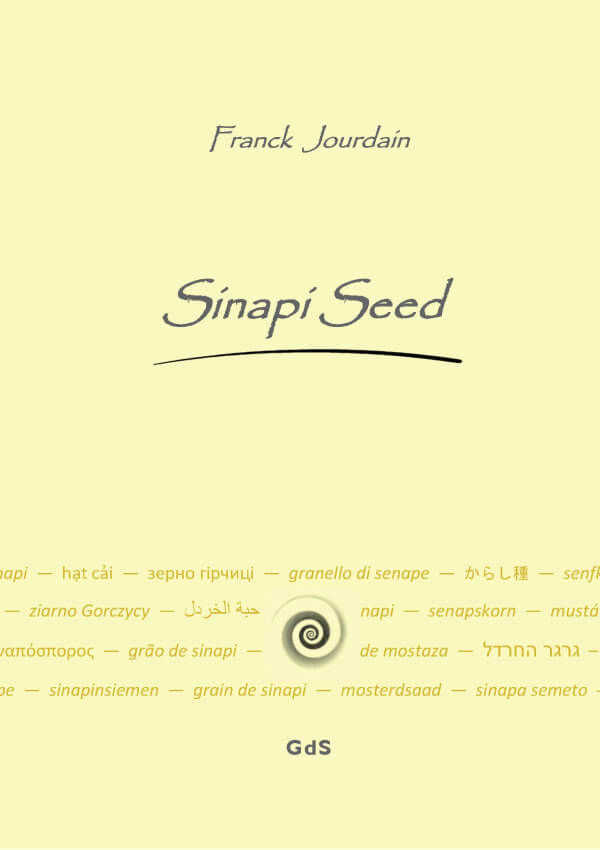
Sinapi Seed
Franck Jourdain
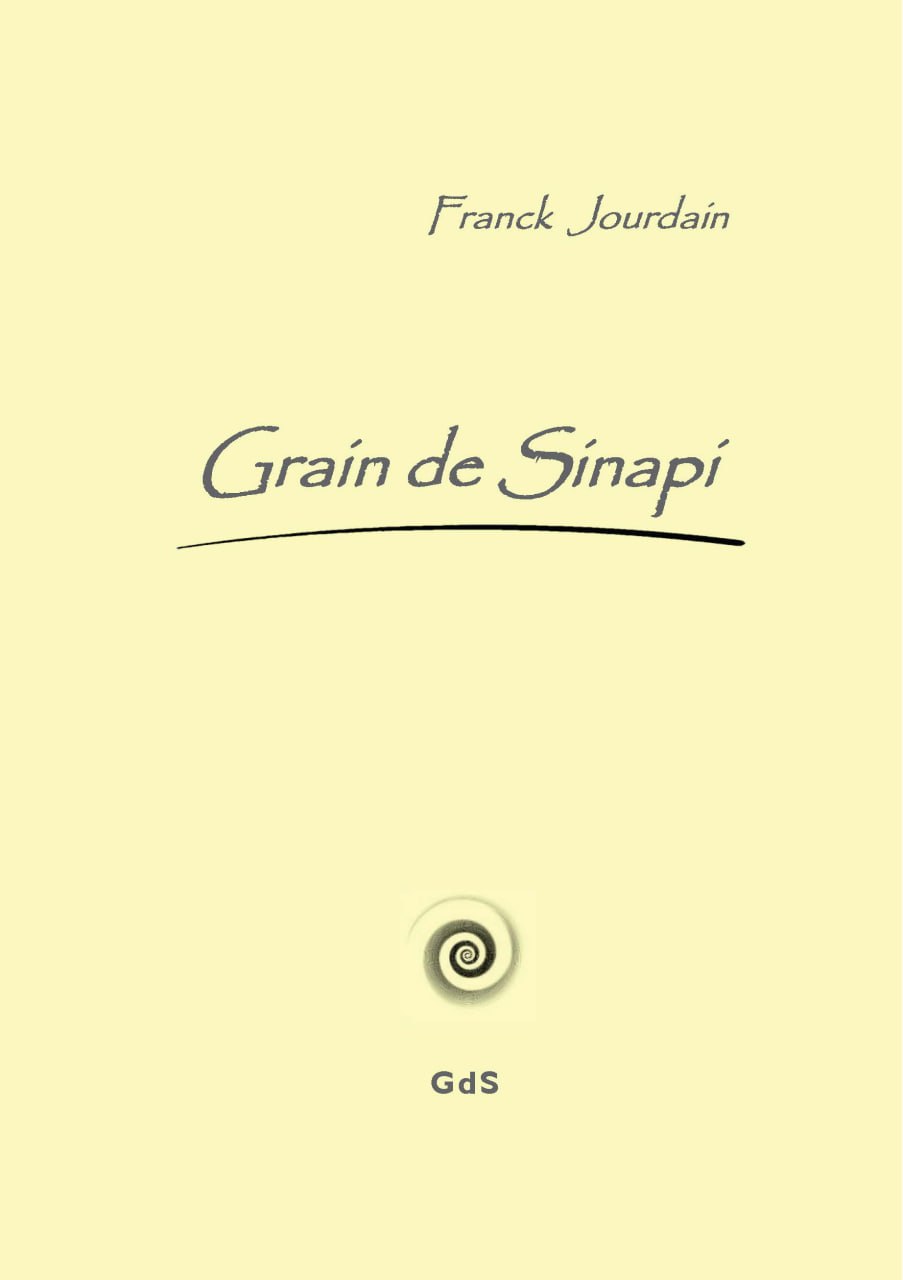
Grain de Sinapi
Franck Jourdain
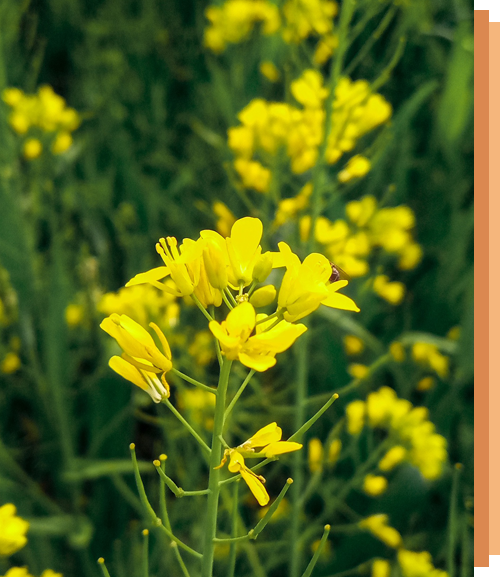
About
G rain de Sinapi Editions was founded in September, 2020.
The company headquarters is located in France, on the outskirts of Toulouse, in Labège.
Its editorial line is essentially focused on the publication of analytical works (essays) devoted to religious or ethical themes, to that which indelibly conditions cultures and human relations, and which ultimately have social and environmental impacts. The various analyses can encompass all areas of knowledge and explore exegetical as well as anthropological, sociological, psychological, or economic topics, or draw from fundamental scientific topics (physics, genetics, etc.).
Publications
The question of the regime
of value as the foundation
of humanity’s alienation.
“An interpretation of the creation story found in the Biblical text of Genesis, this essay highlights the question of the regime of value as the foundation of humanity’s alienation. The author tries to put into perspective the message of warning addressed to mankind by this foundational text, a warning concerning its relationship with the created world, the meaning of history, and the future of humanity.” © Electre 2024
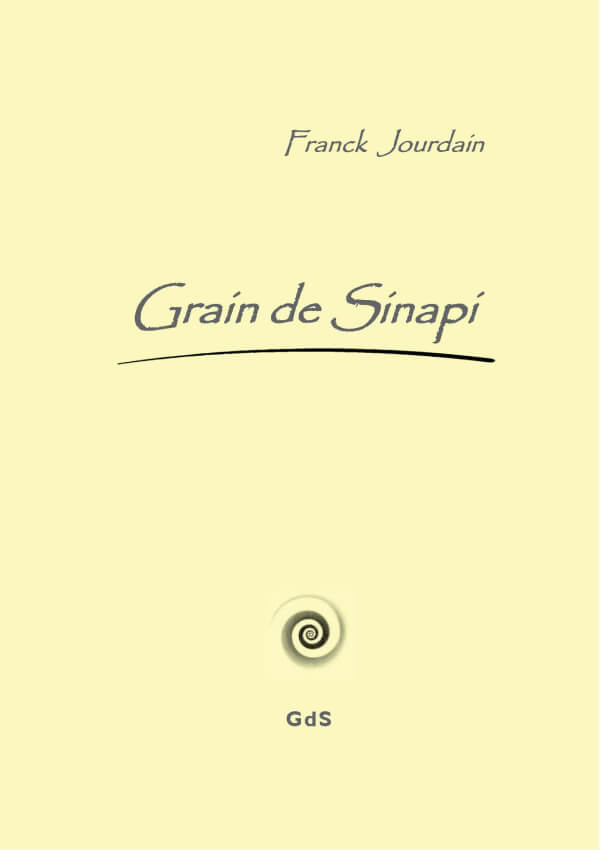
ISBN : 978-2-9575942-4-5
122 pages
The Greek term sinapi (σίναπι), which is found in the Bible, denotes a plant from the family Brassicaceae (or “Cruciferae”) and is translated into English as “senevey.” Sinapi is presumedly the black mustard plant, known for its revulsive properties. This plant, which grows from a very small seed, conveys the symbolism of the incredible growth or extraordinary effect of a phenomenon that was negligeable at the outset.


In his book Sinapi Seed, Franck Jourdain invites us to different way of thinking human relations, our relationship to things, and our relationship to the world.
The facts are clear: our physical world and our societies are not well. It even seems that, due to the urgency of the situation, we are powerless to effect any possible transformation of this situation. But do we really know the source of evil that is harming us? And is there still time for remedies?
We must change the paradigm…
And what if, on this point, the foundational texts of our cultures, in their clairvoyance, had the solution, and we have not understood them… thereby relegating them to the myths of cultural archaisms under the very influence of the evil that alienates us?

Back cover
“The serpent was the most cunning of all the animals of the fields that Yahweh God had made. It said to the woman: ‘So, God has said: You will not eat of all the trees in the garden?’”
Genesis 3:1
How well do we really know this verse, and have we fully understood what it tells us? Do we really know the nature of all the actors in this scene, as well as the very nature of what is denounced in this passage? Are we sure we ultimately comprehend the message that this verse is attempting to communicate to us, a message too quickly relegated to Judeo-Christian myths?
Isn’t there something here that we should urgently consider, in this singular moment of our history that seems so decisive in view of the multiple tensions our Earth is experiencing, culturally as well as naturally?
.
A necessary revision of our comprehension of things…
The current situation and its consequences demand an interrogation of our cultures, and, with a sense of urgency, place humans—who remain under the yoke of the hegemonic principle of value and their very dependency on their own development—faced with an impossible—new and necessary—representation of the world:
Weighing the claims of technology, science, ethics (respect for life), religions (often “out of sync” or “ill-suited” when they are not dogmatic or fanatic—or in the expectation of a final wondrous event far beyond any human participation, a passive and fatalistic attitude whose culmination would be the most deadly of resolutions), reason, faith, etc.
And furthermore: managing the short and long term under the inertial weight of existing, continuing to place hope in development or executing an impossible step backwards (backtracking that all too often characterizes the ecological discourse: withdrawing, renouncing, and eliminating in the absence of seeking a new way to manage this development.)
And at the same time, attempting to contain the negative effects of a development that has been anarchical up to now.
And all this, when the very tools of a just reflection fall short, leading to false changes, or else to the idea of an inescapable destiny, to throwing the baby out with the bathwater... and, taken to the extreme, to the foolish idea of a possible human relocation.
Clearly we must redefine many concepts and, in spite of everything, respect and conserve a portion of the Mystery that, with all qualities intact, must ultimately sublimate us.
This approach requires us to reconsider that by which all phenomenon is manifested: information. Then the sacred is revealed in a different way and illuminates an unexpected place to better ensure “creation.” Finally, this situation leads us to reconsider our prejudices and the image we construct of the Deity, so that at the end of this journey, we can reestablish the foundational Texts of our civilizations—which have something urgent to tell us—and remember that “Apocalypse” means “Revelation.”
Thus, the most symbolic text of our cultures regarding the history of our origins and our “fall,” i.e. the tree of the knowledge of good and evil in Genesis (2: 9-18; 3: 1-24), takes on a new dimension and becomes a troubling current event as elucidated by a singular exegesis, by an analysis of desire and its current correlate (value), and by René Gerard’s mimetic theory. After revealing the forbidden fruit, the text informs us of a choice we have to make to get out of the “rut” that we have been tricked into.
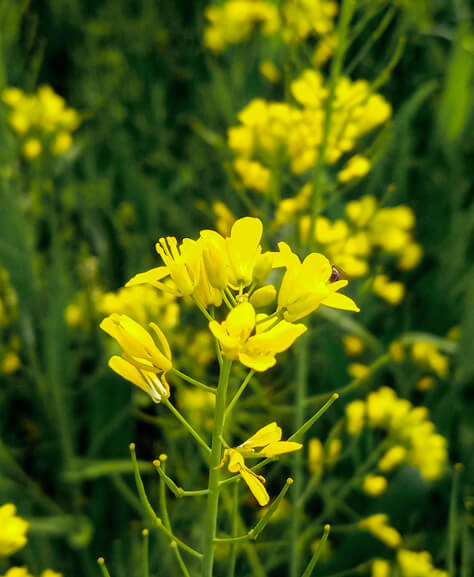
Humanity is now in this condition much closer to Adam than Homo habilis ever could have been: to choose to no longer continue consuming the forbidden fruit, from now on in full knowledge of the fact, or disappear.
These are the stakes of our current situation...
Summary

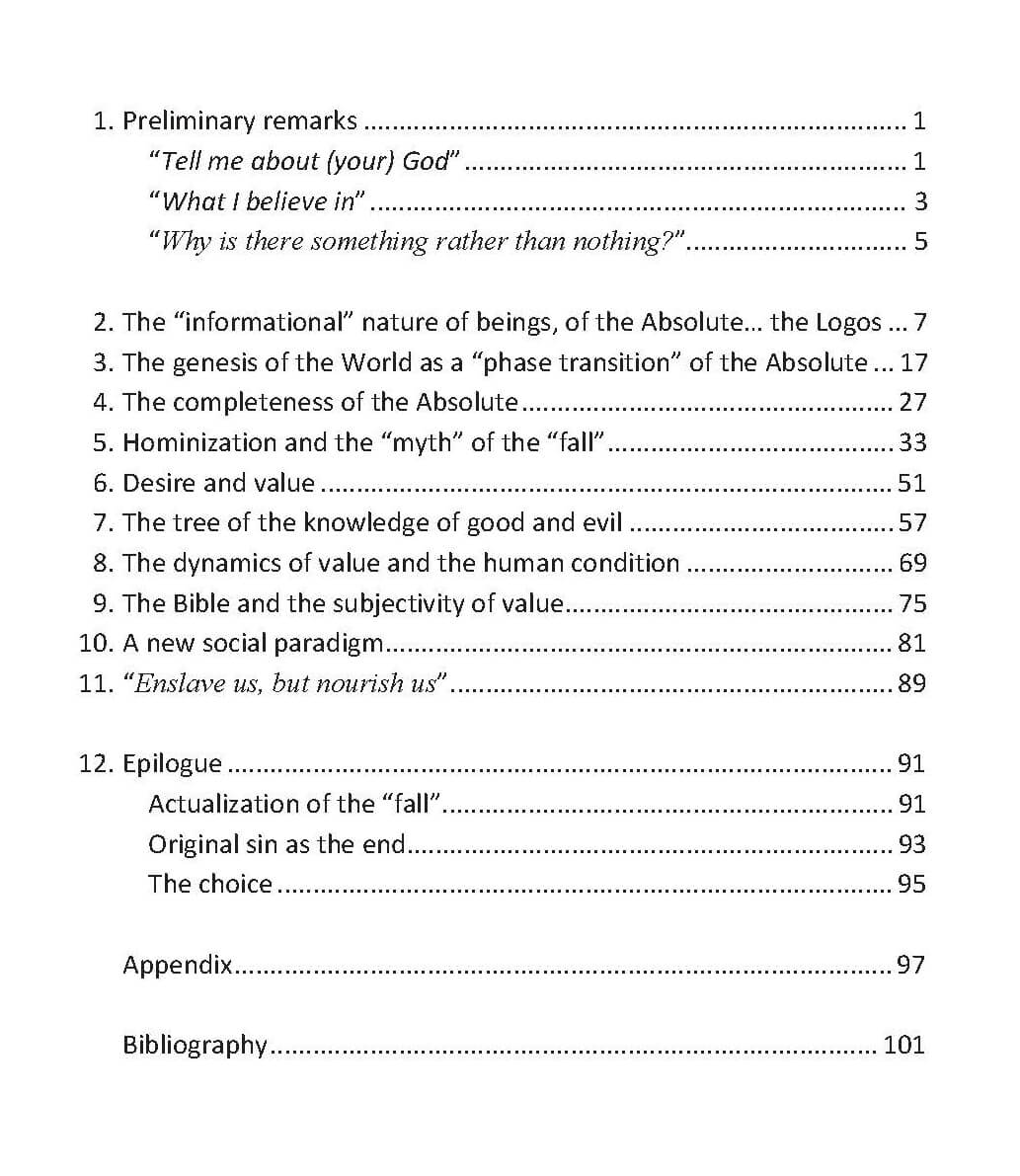
Bibliography
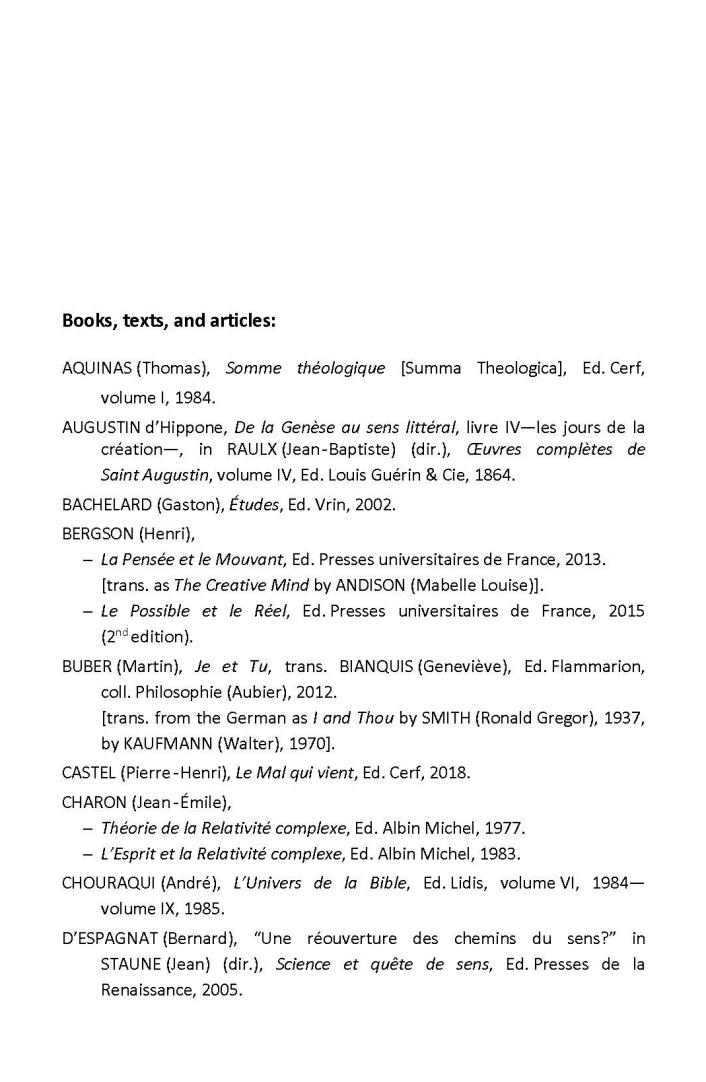
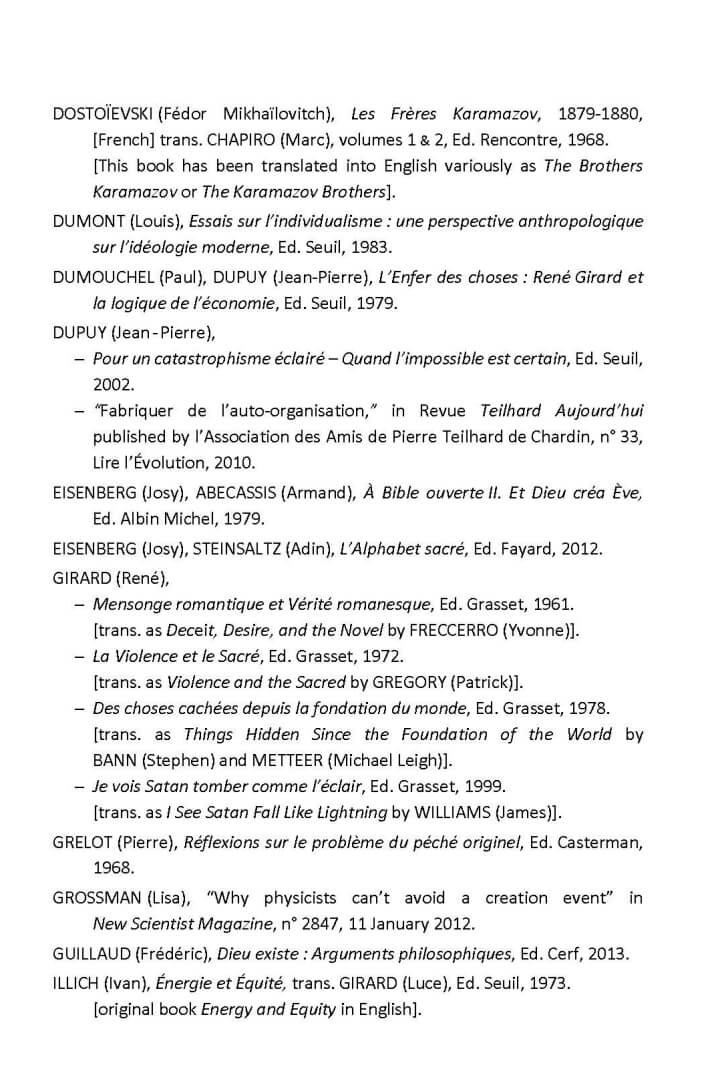
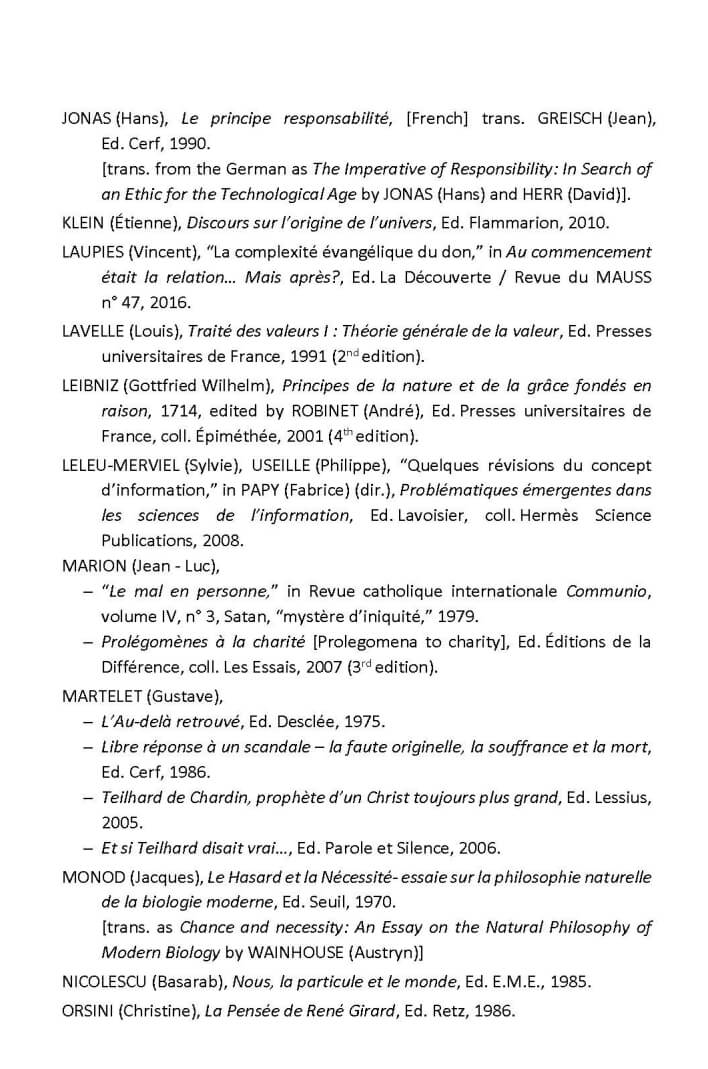
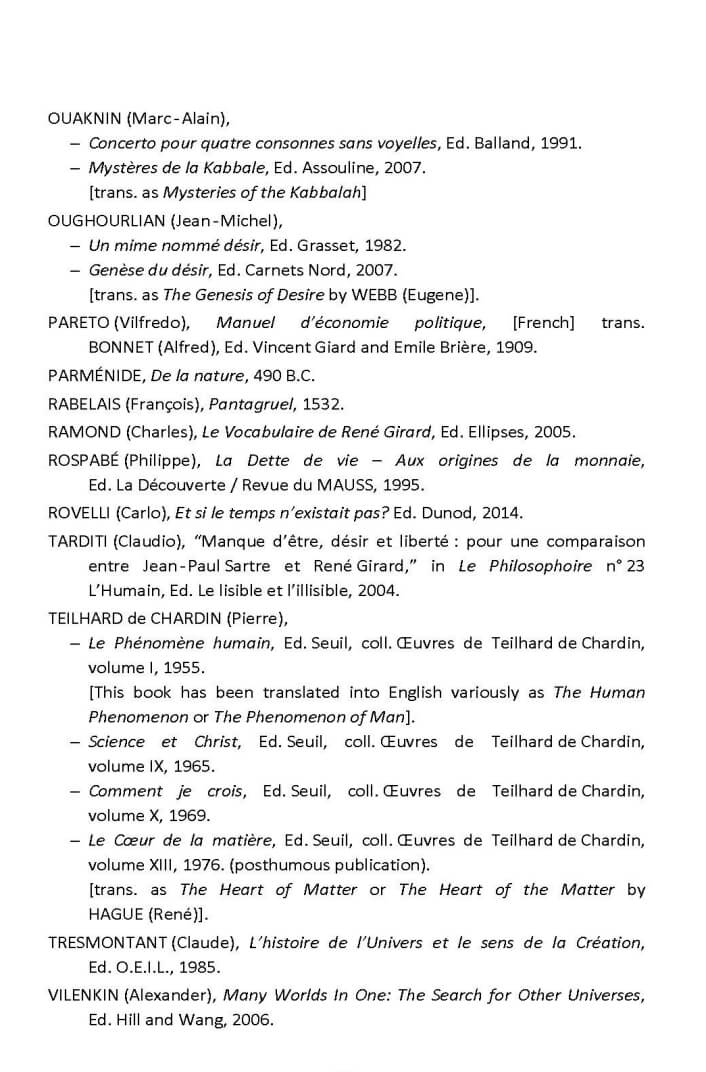
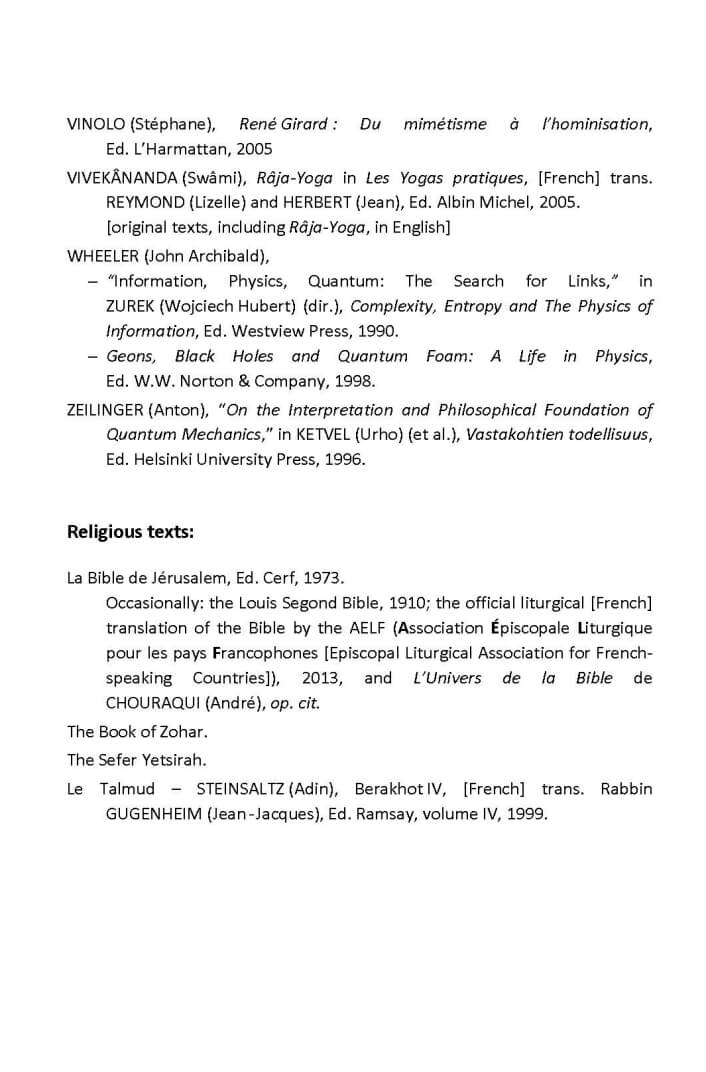
Author Franck Jourdain
An Author, a Book, a Publishing House…
Upon his retirement, Franck Jourdain devotes himself full-time to writing and founded, in September of 2020, the independent publishing house that bears the same name as the book, which was in the final stages of being written at that time: Grain de Sinapi Editions.
Grain de Sinapi Editions went on to publish the first version of the book Grain de Sinapi in March 2021, but only in French. In 2025, the third edition of the book, along with its English version Sinapi Seed were released.
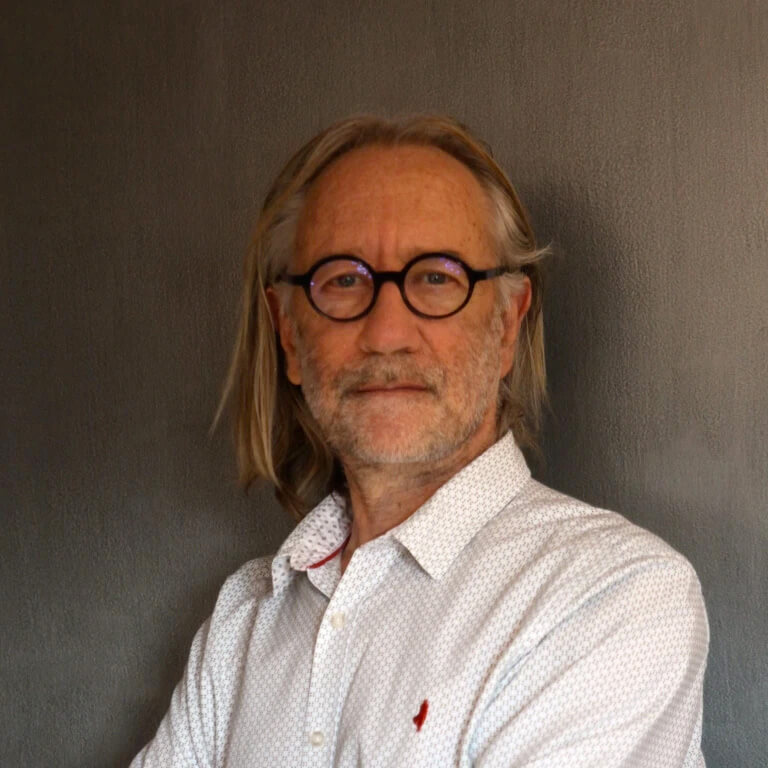
This publishing house is in a way the end result of this book: it was created to distribute the book, just as the wind disseminates the little senevey seed...
Why this book?
A disinterested commitment
This essay is an act of responsibility, meaning first of all the duty to share an experience or a reflection in an act free from any personal interest other than, of course, the implicit moral benefit of following through with this commitment.
Consequently, the author receives no financial gain from the sale of this book: his royalties are donated in their entirety to humanitarian and charitable associations or non-governmental organizations working toward a sustainable, egalitarian, and harmonious human development.
An unprecedented reflection
Although this book makes references to the Bible, it is ultimately not a religious book in the sense of studying the relations between man and an entity that transcends him, but a new reflection on social interactions and what governs, and has always governed, human relations themselves, irrespective of cultures.
We must also clarify that the biblical text, in its evolution, only seeks to promulgate an ever-increasing new social order, as René Girard* has already reminded us, citing Simone Weil:
“[…] even before presenting a ‘theory of God,’ a theology, the Gospels offer a ‘theory of man,’ an anthropology.”
(* René GIRARD, I See Satan Fall Like Lightening, Ed. Gracewing, 2001, p. 44)
The biblical text at the heart of the analysis of this essay is a warning to decipher, so this essay makes its author a whistle-blower. This is another aspect of the duty that motivated the writing of this book, along with the responsibility to not avoid it.
A strong conviction
Very early on, during the course of his reading and reflections, the author acquired a conviction: the notion of value in its purely comparative acceptation, at the heart of human relations, establishes an economy centered on the ego—contrary to giving, which, free from all goals or subsumptions, in a certain way is oriented toward service (good to others).
Following this line of thinking, value orients desire, distorts the finality of human mimicry in a singular way (for more on the mimetic processes, see the works of René Girard), and, without correcting this state of affairs, will inevitably lead humanity to its end.
Since the warnings of the Club of Rome (1972), the economy of capital (culminating point of societies under the regime of value) has demonstrated, in its unavoidable divisions, its inability to be able to effectively integrate ecological action, which is seen as an impossible surcharge to reconcile with the principles of competition. Moreover, to this day, no society has been constructed without this regime, no matter how primitive this society is—so from bartering to capital, it has only been a question of time. Any system of exchange that implements a unit of account to regulate its activities (whether this unit be physical: currency, token, object… or logical: time) always allows for subjectively qualifying things and thereby arbitrarily ascribing value to them.
A necessary “utopia” as a horizon line
The author thinks that there is no (lasting) world that is possible other than a world with no cost, based on giving and unburdened by the subjective value of beings and things, under the provisions of a constantly evaluated personal responsibility and a society governed by the principle of precaution raised to the rank of a categorical imperative. The stakes are of this magnitude.
“[...] You can [should/must] eat from all the trees in the garden. But from the tree of the knowledge of good and evil [the subjective value of beings and things] you will not eat, for, the day that you will eat of it, you will become liable to death [you will be liable to disappear]” Genesis 2:16-17
Where to buy Sinapi Seed
(Also available to order at your local bookstore - Print On Demand)





